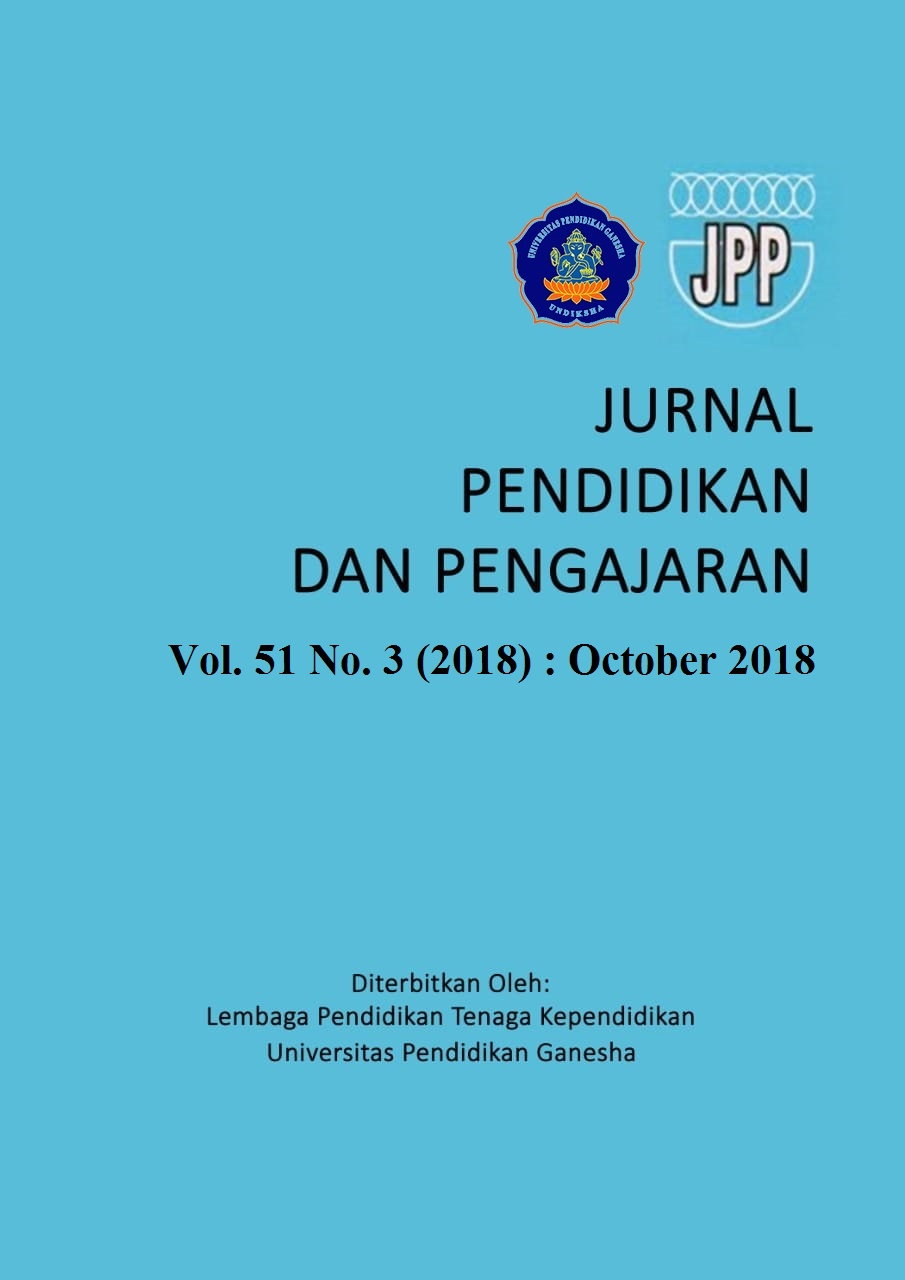Implementation of an environmental-based alternative integrative thematic model to increase meaningfulness and learning outcome
DOI:
https://doi.org/10.23887/jpp.v51i3.15945Kata Kunci:
alternative integrative thematic, meaningfulness of learning, learning outcomesAbstrak
This study was aimed at improving the meaningfulness and learning outcomes of grade 2 students of SDN Gendongan 02 Tingkir District of Salatiga City by applying an environmental-based alternative integrative thematic design. This study was applied to 39 students as the subject and used Stringer model in 2 cycles with look, think, and act phases. The data collection instruments were test, questionnaires, observation sheets, and field notes. The test instruments were used to determine student learning outcomes. The questionnaire was used to determine the meaningfulness of student learning. While the observation sheet and field notes were used to monitor the course of learning according to the learning scenario. The data analysis technique was descriptive comparative technique. The results show that there is an improvement from cycle I to cycle II, in both meaningfulness and student learning outcomes. Therefore, the environmental-based alternative integrative thematic design can be used to improve learning meaningfulness and student learning outcomes.Unduhan
Diterbitkan
2018-10-29
Cara Mengutip
Kharisma, I., & Mawardi, M. (2018). Implementation of an environmental-based alternative integrative thematic model to increase meaningfulness and learning outcome. Jurnal Pendidikan Dan Pengajaran, 51(3), 154–162. https://doi.org/10.23887/jpp.v51i3.15945
Terbitan
Bagian
Articles
Lisensi
Authors who publish with Jurnal Pendidikan dan Pengajaran agree to the following terms:- Authors retain copyright and grant the journal the right of first publication with the work simultaneously licensed under a Creative Commons Attribution License (CC BY-SA 4.0) that allows others to share the work with an acknowledgment of the work's authorship and initial publication in this journal
- Authors are able to enter into separate, additional contractual arrangements for the non-exclusive distribution of the journal's published version of the work (e.g., post it to an institutional repository or publish it in a book), with an acknowledgment of its initial publication in this journal.
- Authors are permitted and encouraged to post their work online (e.g., in institutional repositories or on their website) prior to and during the submission process, as it can lead to productive exchanges, as well as earlier and greater citation of published work. (See The Effect of Open Access)





